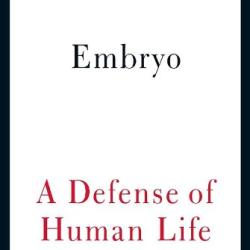But enough of this self-flagellation. It is what it is. I've never faced this big a challenge before. I shouldn't be so hard on myself. I blew it, and I may not get another chance. Still, if I do, this debriefing process will be important to my future success.
If I had it to do over again, I might try a less-is-more approach. I was way too obvious with my spiritual seduction strategy. I shouldn't have shown him the things he could have if he renounced his identity and mission on such a big scale. Hundreds of loaves of bread, a bungee jump into the arms of angels, and all the high-end malls, golf courses, and lakefront property in the world. Maybe I should have just invited him to turn one small rock into a donut hole; gently encouraged him to jump off a low ledge, and offered him two weeks at a time-share in the off-season. I'll remember that if there is a next time.
Another possibility that occurs to me is what I'll call the "Ghost of Crucifixion Future" approach. Maybe I should have begun by approaching Jesus as a commiserating friend.
"Hello, Jesus. I've been waiting so long for you to show up. Your lips look so chapped. Here, you can keep this. (I'd hand him a tube of cherry-flavored Chapstick.) I'm so sad about what the future holds for you. I admire your restraint in still being hungry after all these days. Even though you could make these stones into artisan jalapeno cheese bread or lemon poppy seed muffins or even Cinnabons, if you so chose. I admire you for your extreme asceticism. When you starve to death here in the desert in a few days, I'll make sure your remains are treated with honor. I am tempted to point out what a waste that would be, but a true friend doesn't seek to dissuade someone from their sense of purpose, only to remain by their side in their hour of trial." (That's a good line; I'll need to practice that to achieve just the right blend of sadness and sincerity.)
If that didn't result in his nobly starving to death, I would take him to the pinnacle of the temple and say to him, "Some Sons of God would want to prove their identity and power by pulling dramatic, high-risk stunts. But you are content to stay in this backwater district and not take any risks at all and so preserve and extend your life and influence. The less you risk the longer you live. I have always wished that I had followed that advice, but I was so ambitious, so eager to move beyond the courts of heaven. I should have stayed there, at his side, where I belonged."
If that didn't motivate him to jump just to distance himself from me, I could try one final move. It would not involve my quoting Scripture, which, in retrospect, was the wrong rhetorical strategy to get into with him, though he was the one who started it. Rather than establishing a common identity between us, I think he got the feeling I was manipulating God for my own purposes. The other problem with the Scripture-quoting approach is that he knows it better than I do. There is a first time for everything.
If I had it to do over again, I wouldn't give him an ultimatum: "All these I will give you if you will fall down and worship me." That was melodramatic, not dramatic. I came off as needy and desperate. The Devil is supposed to be cool. I was out-cooled. It was too much all around: the mountain, the ultimatum, and the over-the-top spread I showed him around the mountain. Who did I think I was dealing with? Some backwoods boy who just bought a lottery ticket?
Next time I'll take him to somebody's home. Not a palace, but a humble home. One where there is love among the family members. I'll be fine as long as I remember to take my anti-nausea medication first. We'll stand at the window as they gather around their dinner table, and I'll say: "I think it's so admirable that you are willing to give this up without any regrets or second thoughts. Foxes have holes, and birds of the air have nests, but you, you have nowhere to lay your head. And you never will." That's a good line. "You will have no wife to warm your heart and bed. No children to surround you with love and laughter and care for you when your steps falter and your sight is dimmed with age."
And here I'd show him a scene of his hanging on the cross. "No, you have a different future. It is so amazing that, rather than scare you, it energizes you. Rather than frighten you with the prospect of pain, it strengthens you to forego the happy scene before us without any yearning or regret. Your steps will slow, because you drag a cross. Your sight will dim, because blood pours into your eyes from the wounds on your head. How I admire your utter singleness of purpose! I feel for your future pain. If I could, I would take your place. To save you this suffering."
I wonder if that last bit is too much. Does it sound insincere? And wait, what if he says "Okay, you take my place" . . . then what?
All right, this coulda-shoulda session has helped clarify my thinking. If another opportunity arises; I now have two strategies in the hopper, two arrows in the quiver:
- The less-is-more approach : donut hole, ledge, time-share.
- The Ghost of Crucifixion Future approach: starve to death, take no risks, forego happy family and longevity in favor of premature, excruciating and prolonged death.
Last time I oversold the future benefits of betraying his identity and mission.
Next time, I go the opposite way. I present him with negative pictures of the future, if he stays on the path he has chosen.
Now to wait for an opportune time ...





